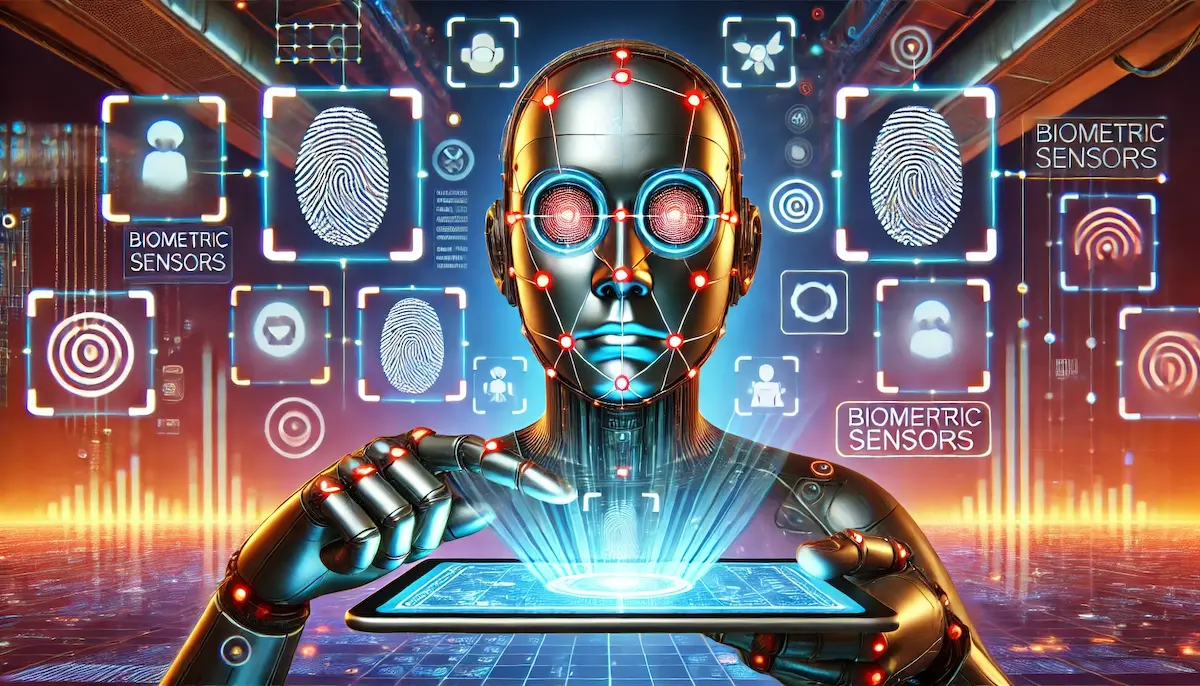Biometric sensors are a pivotal technology in modern electronics, enabling the measurement and analysis of biological data from living organisms. These sensors are used in a wide range of applications, from personal health monitoring to security and identification systems. This article explores what biometric sensors are, their key features, types, applications, and future trends.
What are Biometric Sensors?
Biometric sensors are devices that capture and measure biological data, such as heart rate, fingerprints, facial features, and other physiological characteristics. These sensors convert biological information into digital data that can be analyzed and used for various purposes, including health monitoring, security, and user authentication.
Key Features of Biometric Sensors
Biometric sensors have several distinguishing features that make them valuable for a variety of applications:
1. Accuracy
Biometric sensors are designed to provide precise and reliable measurements of biological data. High accuracy is crucial for applications like medical diagnostics and security authentication.
2. Real-Time Monitoring
Many biometric sensors offer real-time monitoring capabilities, providing immediate feedback and allowing for timely interventions or actions based on the data collected.
3. Non-Invasive Measurement
Biometric sensors are often non-invasive, meaning they can collect data without the need for invasive procedures or discomfort. This makes them suitable for continuous monitoring and everyday use.
4. Integration with Devices
Biometric sensors can be integrated into a variety of devices, including smartphones, wearables, and medical equipment. This integration allows for seamless data collection and analysis.
5. Data Security
Given the sensitive nature of biometric data, security features are essential. Biometric sensors often include encryption and secure storage mechanisms to protect the collected data.
Types of Biometric Sensors
There are several types of biometric sensors, each designed to measure specific biological characteristics:
1. Optical Sensors
Optical sensors use light to measure various biometric parameters. For example, they can capture fingerprints, scan irises, or monitor heart rate through photoplethysmography (PPG).
2. Capacitive Sensors
Capacitive sensors detect changes in electrical capacitance caused by the presence of a biological feature. They are commonly used in fingerprint scanners and touch-sensitive devices.
3. Ultrasonic Sensors
Ultrasonic sensors use sound waves to capture detailed images of biometric features, such as fingerprints. They offer high accuracy and can work through various materials, including glass and metal.
4. Thermal Sensors
Thermal sensors detect heat patterns emitted by the body. They are used in facial recognition systems and can measure temperature variations to identify individuals or monitor health conditions.
5. ECG and EKG Sensors
Electrocardiogram (ECG) and electroencephalogram (EEG) sensors measure electrical activity in the heart and brain, respectively. These sensors are used for medical diagnostics and monitoring.
6. Chemical Sensors
Chemical sensors detect biochemical substances, such as glucose levels in the blood. They are commonly used in medical devices for monitoring diabetes and other metabolic conditions.
Applications of Biometric Sensors
Biometric sensors have a wide range of applications across various fields:
1. Healthcare
In healthcare, biometric sensors are used for continuous patient monitoring, early diagnosis of diseases, and personalized treatment plans. They can track vital signs, monitor chronic conditions, and provide real-time health data to medical professionals.
2. Security and Identification
Biometric sensors play a crucial role in security systems, providing accurate and reliable methods for user authentication and access control. They are used in fingerprint scanners, facial recognition systems, and iris scanners.
3. Wearable Technology
In wearable technology, biometric sensors are integrated into devices like smartwatches and fitness trackers. These wearables monitor physical activity, heart rate, sleep patterns, and other health metrics.
4. Law Enforcement
Law enforcement agencies use biometric sensors for identifying individuals, solving crimes, and managing databases of biometric data. Fingerprint and facial recognition technologies are commonly employed.
5. Consumer Electronics
In consumer electronics, biometric sensors enhance user experience by providing secure and convenient authentication methods. Smartphones and laptops often include fingerprint and facial recognition capabilities.
6. Sports and Fitness
Athletes and fitness enthusiasts use biometric sensors to optimize their training and performance. These sensors track metrics like heart rate, oxygen levels, and muscle activity, helping users improve their workouts and avoid injuries.
The Future of Biometric Sensors
The future of biometric sensors is bright, with ongoing advancements promising even more sophisticated and versatile applications:
1. Enhanced Accuracy and Miniaturization
Future biometric sensors will become more accurate and smaller in size, making them easier to integrate into various devices and applications.
2. AI Integration
Artificial intelligence (AI) will play a significant role in the evolution of biometric sensors, enabling more advanced data analysis, pattern recognition, and predictive analytics.
3. Multi-Modal Biometrics
The integration of multiple biometric modalities, such as combining fingerprint and facial recognition, will enhance security and accuracy in identification systems.
4. Improved Health Monitoring
Advances in biometric sensor technology will lead to more comprehensive and non-invasive health monitoring solutions, providing users with better insights into their health and well-being.
5. Expanded Applications
As biometric sensors continue to evolve, new applications will emerge in areas such as virtual reality, augmented reality, and personalized medicine, expanding the impact of this technology.
Biometric sensors are a vital component of modern technology, providing valuable insights into our biological data and enhancing various aspects of our lives. With ongoing advancements, the potential for these sensors to improve health, security, and convenience is vast.
Blockfine thanks you for reading and hopes you found this article helpful.
